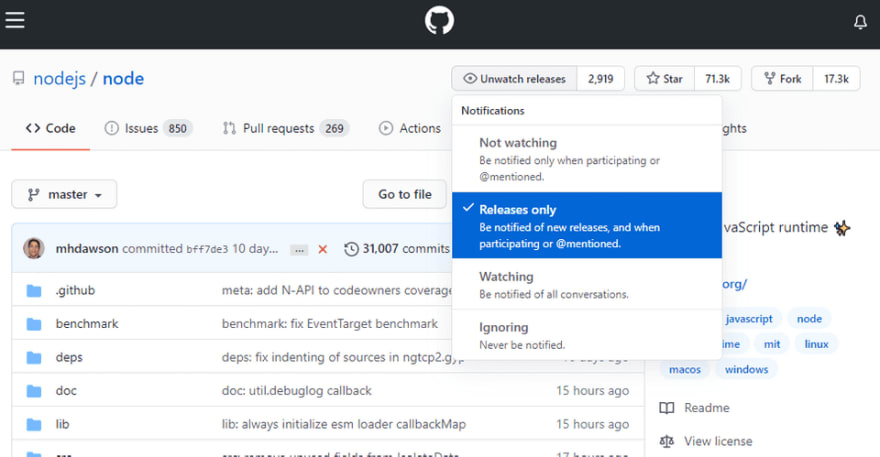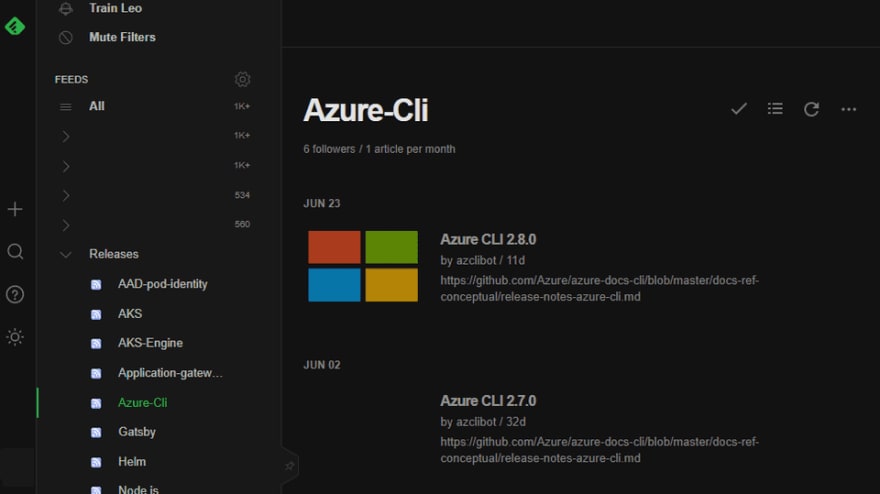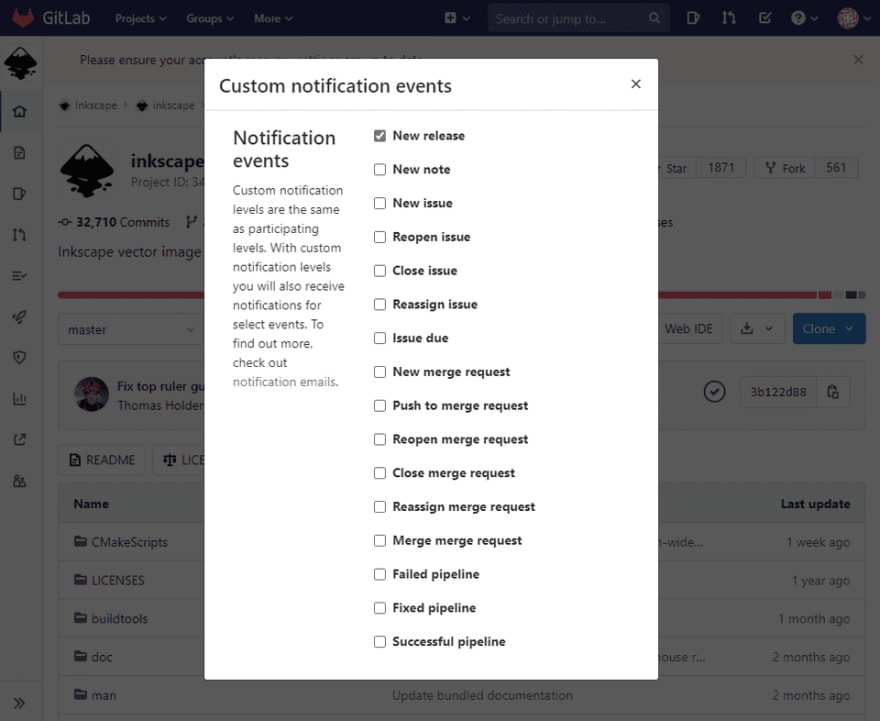Nowadays there are lots of technologies and dependencies involved in our day-to-day projects, therefore making it more difficult to know them all and to track their changes.
New releases of tools, software, and software development related technologies happen almost every day. This can be sometimes kind of frustrating. You can be working in a brand new project using the latest available versions, and in the process of developing the project, versions bump and new features and fixes are available. This don’t have to be bad indeed… These new versions can improve our product/project and solve some problems for us, and we know we have to update them someday and I personally think it’s better to bump version by version than bumping from one version to another with several versions in the middle (which may result in a complicated process).
Then… How to get up-to-date with all of these? Can we manage to get notified every time a technology we use is updated? Sure we can do it!
Approaches
There are different approaches to accomplish this. We are going to review some of the most used ones and the ones that I prefer.
Using GitHub notifications
Nowadays with the Open Source initiative, the majority of projects we use to develop every day are open sourced and hosted in platforms like GitHub, GitLab and others (for example: Node.js, Deno, Vue.js, Microsoft projects…).
This projects usually manage their releases using GitHub releases, so we can use the built-in GitHub notifications to get notified on every release of the projects we want to track in a very simple way (just tap on watch and select releases):
This way new releases will appear in our feed of notifications in our profile of GitHub. Depending in our notifications configuration, we can achieve to get this notifications in our mail too.
Simple.
Nevertheless, I found this process a little bit confusing sometimes and I missed some of the new releases of my used projects. This can be because, in my case, the GitHub notifications feed was plenty of notifications of mentions, PRs, reviews, and others. So, I tried to change this and organize myself better, moving this notifications to a RSS feed.
GitHub release notifications in a RSS feed
GitHub provides an RSS feed for releases for every project, which follows the following URL structure:
https://github.com/{USER}/{PROJECT}/releases.atom
For example:
https://github.com/nodejs/node/releases.atom
Knowing this, we can use our favorite RSS reader/client to group RSS feeds of different releases and use it to read and be notified for the latest releases.In my case, I use Feedly, to make a feed and group different sources naming and organizing them:
In this way, I personally check the feed every day if new releases have been published or if some versions have went out of preview to an stable version.Also note, that it’s always important to check the changelog usually provided with each release, before attempting to use the last version (there could be breaking changes or deprecated functionalities you’ll need to manage).
Not on GitHub? No problem…
There could be some projects that are not open sourced, or using another Version Control platform like GitLab. In the case of GitLab, we can subscribe to release notifications like GitHub and manage them to get the notifications in our mail easily as explained with GitHub above:
What if a project is not open sourced or not in any of the mentioned platforms?
Well… There are also plenty of options to keep track of them. Usually largely used projects tend to have a Twitter account, a blog, or other resource we can watch and keep up-to-date.
In this case, to make all notifications came to the same place we could use some mechanism of automation to watch for us blog updates or twitter accounts and notify us on new releases.
Some tools like IFTTT, provides us simple yet powerful workflows to automate this kind of things. For example, we can set up a workflow to get new releases information from a blog (via RSS) to our mail:
Other options could be to watch a Twitter account and send it to our mail, set up an RSS feed of a Twitter account updates which contains certain words (like “release”), and other workflows you could imagine.
Personally, I have not found a project whose releases I couldn’t track.
Conclusion
There are plenty of options to get up-to-date with your tech stack or favorite tooling. Simply use the most comfortable to you, or the one you find more productive.
I’m sure this process will help you out to keep you up-to-date and be a more informed and organized developer.
Do you use another way to keep up-to-date with new versions and releases?
Happy coding! 🎉🎉







Top comments (0)